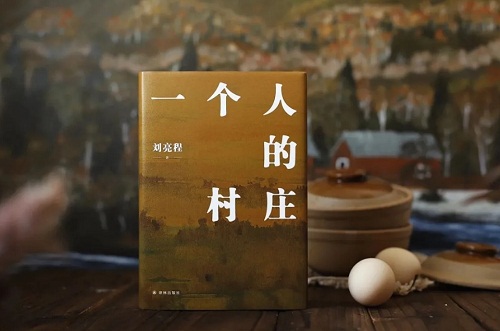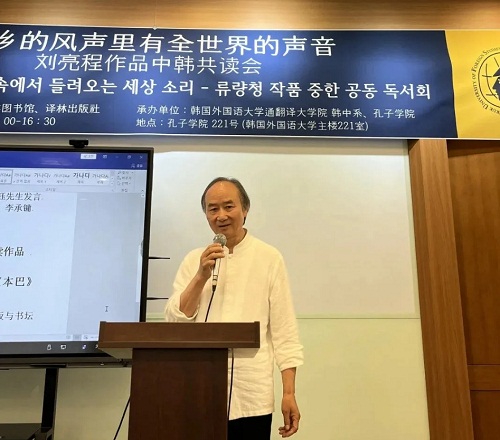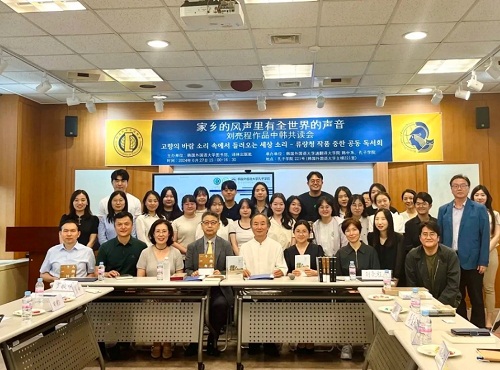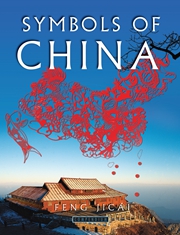Chinese writer shares his work in S Korea
(en.ppm.cn)

The Chinese edition of A Village of One's Own, written by Liu Liangcheng.
A book reading seminar was held for A Village of One's Own, written by Chinese writer Liu Liangcheng and published by Yilin Press, at Hankuk University of Foreign Studies in South Korea on June 27.
From the perspective of an "idle person", the author poetically depicts the woods, animals, winds, nights, moonlight, and dreams in the village. This "idle man" subordinates sowing and harvesting to observing the rising and setting of the sun, as well as the booming and withering of flowers. He adheres to a natural way of living to better feel the wonders of the universe.

Liu Liangcheng delivers a speech at the book reading seminar.
Liu, who is also the winner of the Mao Dun Literary Prize, the top literary award in China, talked about how he recalled her hometown when he was in a strange land and how to bring the past to life through words.
He believes that his village in the book is not really alone, but the pure emotional resonance of nature in every human being.
Liu expressed hope that the relations between human beings and nature in the book will resonate with readers in Asia and around the world, and that his words will capture the heart of every nature-loving person.

Participants of the book reading seminar pose for a group photo.
The head of the publishing house that is in charge of the publishing of the Korean edition of A Village of One's Own said that he believes the book will help spread Chinese literature in South Korea and around the world.
Professors at the Hankuk University of Foreign Studies were unstinting in their praise and referred to it as a hymn to the harmony between man and nature.
A signing ceremony for the copyright of the Korean edition of Bomba by Liu Liangcheng was held on the same day.
-

Symbols of Jiangsu (Pocket Edition)
Non-FictionSymbols of Jiangsu (Pocket Edition) selects the most representative and symbolic Jiangsu special cultural resources.
-

Symbols of China
Humanities & Social Science; Non-FictionSymbols of China examines those things that make China Chinese.



